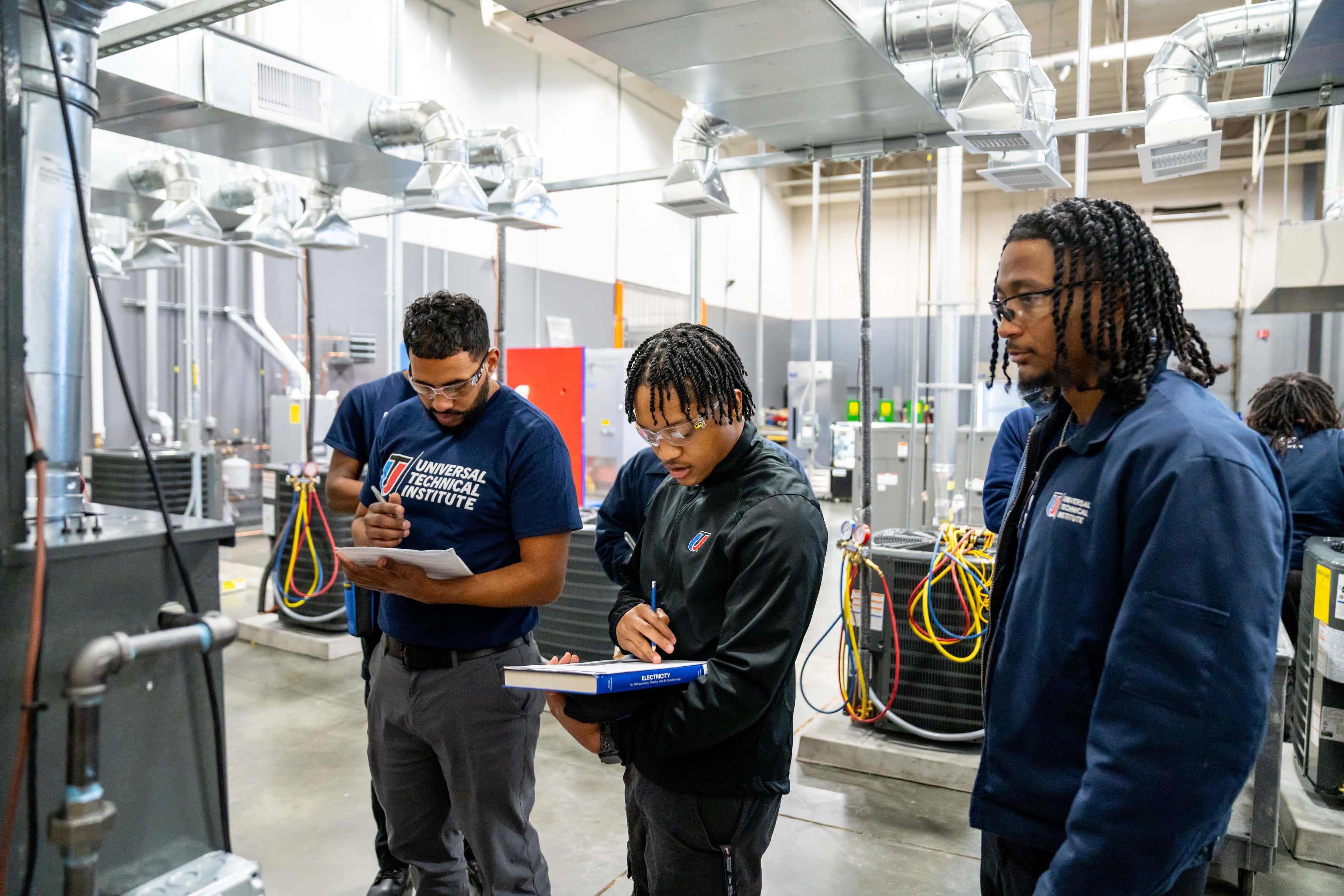Wondering about the difference between HVAC and HVACR? You’re not the only one.
Whether you're thinking about a career change or just want a better understanding of how these systems work, learning the basics can help you make a smart next move.
You don’t need a four-year degree to build real skills — and with focused training, you could be on your way to pursuing a hands-on job in the field in less than a year.
Let’s look at what HVAC vs. HVACR really means, how the systems differ and what each path could offer in terms of career opportunities.

What is HVAC?
Overview of heating, ventilation and air conditioning
HVAC stands for heating, ventilation and air conditioning. These systems control the temperature, airflow and air quality in homes, businesses, schools and more. HVAC techs work on equipment like furnaces, ductwork, air conditioners and heat pumps.

These roles often involve installing and servicing units, checking airflow, replacing filters and keeping indoor spaces safe and comfortable.
Typical HVAC system applications
HVAC systems are used just about everywhere. You’ll see them in houses, hospitals, office buildings, factories and shopping centers. Most of the time, they’re focused on heating and cooling air and moving it through space efficiently. These setups can range from basic to complex, depending on the size of the building and what kind of climate control is needed.
Read: HVAC Systems & Indoor Air Quality: What You Should Know
What is HVACR?
Adding refrigeration to HVAC systems
HVACR is just like HVAC, but with refrigeration added. That "R" stands for refrigeration systems like those used in grocery stores, restaurants, cold storage warehouses and medical labs.
So, if you’re comparing HVAC or HVACR, think of it like this: HVAC covers comfort. HVACR covers comfort and cold storage.

Key differences in equipment and service
Refrigeration systems require a specific type of knowledge. These systems keep food fresh, protect temperature-sensitive materials and help prevent product loss. If you’re looking at the difference between HVAC and HVACR, the biggest shift is that HVACR techs need to understand cooling cycles and how to safely handle refrigerants in compliance with EPA guidelines.
Read: HVACR System Components: Your Go-To Guide
Key Differences in Systems and Careers
Career paths and required skills
Both HVAC and HVACR techs work in hands-on roles, but HVACR techs are often trained for broader job sites. HVAC-only roles may stick to homes or smaller commercial jobs, while HVACR techs might work in restaurants, hospitals, data centers or grocery chains, where cooling systems are critical.
HVAC and HVACR technicians both need strong troubleshooting skills, attention to detail and the ability to work safely around electrical parts and pressurized systems. If you want a career that blends mechanical skills with problem-solving, either path could work. However, the HVACR industry may offer more variety in job types and work environments.
Certification and training requirements

HVAC and HVACR both require proper training before entering the field. Students in Universal Technical Institute’s 9–10-month HVACR Technician training program can complete HVACR training in less than a year and be prepared to pursue certifications like EPA Section 608, which is required for handling refrigerants.1
Programs like the one at UTI focus on hands-on training with real equipment, helping students learn to service both HVAC and refrigeration systems. You can learn more about the job and its day-to-day responsibilities here.
Read: A Guide to Preparing for NATE Core HVACR Exams and Certifications
Prepare for an HVACR Career With Hands-On Training!
HVACR is a field that keeps growing. Our HVACR training program is built to help graduates pursue entry-level roles in the industry — and with confidence. Students can complete the program in under a year and connect with Career Services when they’re ready to look for jobs.
If you're ready to take the next step, talk to an Admissions Representative at 1-800-834-7308 or get started online.
Universal Technical Institute of Illinois, Inc. is approved by the Division of Private Business and Vocational Schools of the Illinois Board of Higher Education.

